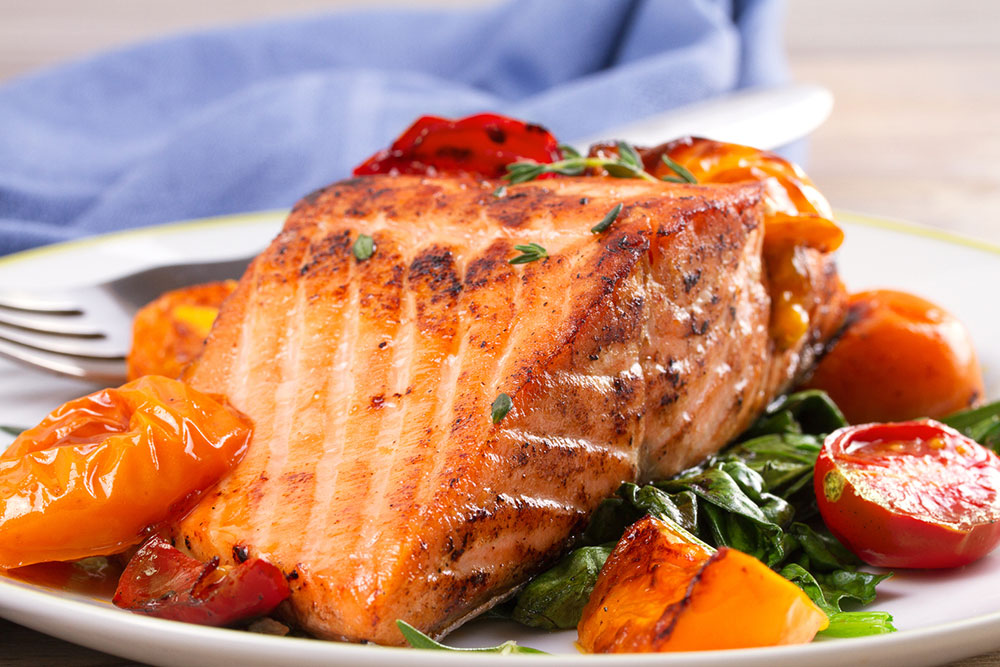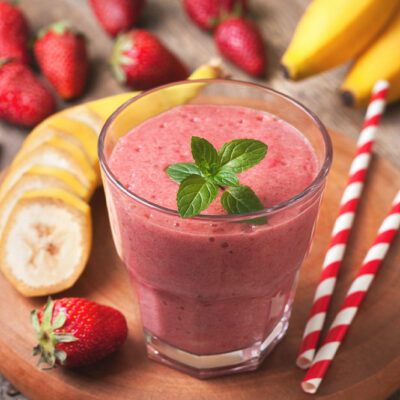9 foods that can trigger respiratory problems

What we eat affects our health. So naturally, eating unhealthy foods that are loaded with empty calories can trigger various health complications, including respiratory problems. These breathing problems might become more prominent in those who are sensitive or allergic to certain foods. So, while one must make healthy meal choices, one should also be mindful of potential triggers. Below is a list of foods that can trigger respiratory problems.
1. Salmon
Fish like salmon are known for being rich in omega-3 fatty acids and their heart-healthy composition. However, eating them can become problematic for those with fish or seafood allergies. One might experience respiratory distress in such situations. Instead of eating salmon, one could have other sources of omega-3 fats and protein. This way, those with allergies can reap a particular food’s cardiovascular benefits without the respiratory risks. Other fish that one might be allergic to include tuna and cod.
2. Oranges
Most individuals enjoy eating oranges because of their immune-boosting vitamin C content. Unfortunately, they contain natural compounds that might act as respiratory irritants in people sensitive to citrus fruits. Other fruits that one should avoid if they are allergic include grapefruits and lemons. Alternatively, an individual could consume other fruits rich in vitamin C, such as kiwis or berries. These options help maintain respiratory health without triggering any reactions.
3. Corn
Corn is one of the most common foods consumed in the country, as it’s versatile and can be added to most recipes. However, the properties of this cereal grain might trigger respiratory issues. People allergic to compounds in corn might experience symptoms such as coughing, wheezing, and nasal congestion. Individuals should also avoid corn-derived ingredients, such as high fructose corn syrup and cornstarch, which are usually found in processed foods.
4. Bacon
Processed meats like bacon are some of the most loved foods in the country, primarily because they are easy to source and prepare and are flavorful. Sadly, the meat is high in nitrites, which are necessary for processing and increasing shelf life. Nitrites are commonly known to cause inflammation and stress in the lungs. A few symptoms one may experience include coughing, chest tightness, and difficulty breathing. Therefore, one might be better off excluding bacon from their meal regime, especially if it always results in respiratory trouble. Other processed meats to exclude are ham, deli meat, and sausage.
5. Peanuts
Several individuals may experience respiratory problems after eating peanuts because they are allergic to them. The reaction occurs when one’s immune system mistakenly identifies peanut proteins as harmful. Following this, certain chemicals are released into the bloodstream, which might trigger respiratory problems. The most common complication of a peanut allergy is anaphylaxis, which is a healthcare emergency that requires immediate treatment. A few symptoms of this condition are constriction of airways, swelling of the throat that makes it difficult to breathe, increased pulse, dizziness, and a drastic drop in blood pressure (shock). If a person is allergic to peanuts, they should also avoid foods made from it, such as peanut butter. Alternatively, one could switch to sunflower seed butter or almond butter.
6. Eggs
While eggs are a source of multiple nutrients for the body, they can be troublesome for people allergic to their composition. Egg allergies may surface with respiratory symptoms in addition to digestive issues. A few symptoms of this allergy include wheezing, coughing, and difficulty breathing. One should also be mindful about the packaged food they eat or restaurant meals. These may contain some eggs in their preparation, which may also exacerbate respiratory symptoms in people allergic to the food. One way to play it safe is only to eat egg-free foods. However, one should consult their healthcare provider before changing a meal regime.
7. French fries
Fried foods are quite unhealthy, especially when eaten in excess. One complication that may stem from eating fried products like French fries is labored breathing. The unhealthy fats in fries may raise cholesterol levels and increase the risk of heart disease. The higher cholesterol levels may result in bloating, which can make it uncomfortable for one to breathe. The unhealthy fats may also result in a gain in pounds, which applies additional pressure on the lungs. Therefore, one should avoid French fries and exclude foods like onion rings and fried chicken.
8. Soda
While it is acceptable to drink carbonated beverages like soda occasionally, excessive consumption might lead to respiratory difficulties. Such drinks are rich in calories, sugar, and carbonation, which result in increased bloating. This might put pressure on the lungs and make it difficult for an individual to breathe. Instead of carbonated beverages, one could switch to drinking water, the best drink to stay hydrated and healthy.
9. Milk
Dairy products like milk contain a sugar known as lactose. People who are lactose intolerant lack the enzyme to break down the property, leading to digestive issues such as bloating and gas. The consumption of this dairy product may also lead to respiratory distress. Milk also increases mucus production in certain people, which may exacerbate asthma symptoms or chronic bronchitis. So, despite its many benefits, such individuals might be better off excluding milk from their meal regime. Other dairy products rich in lactose and require exclusion are cheese and yogurt.








